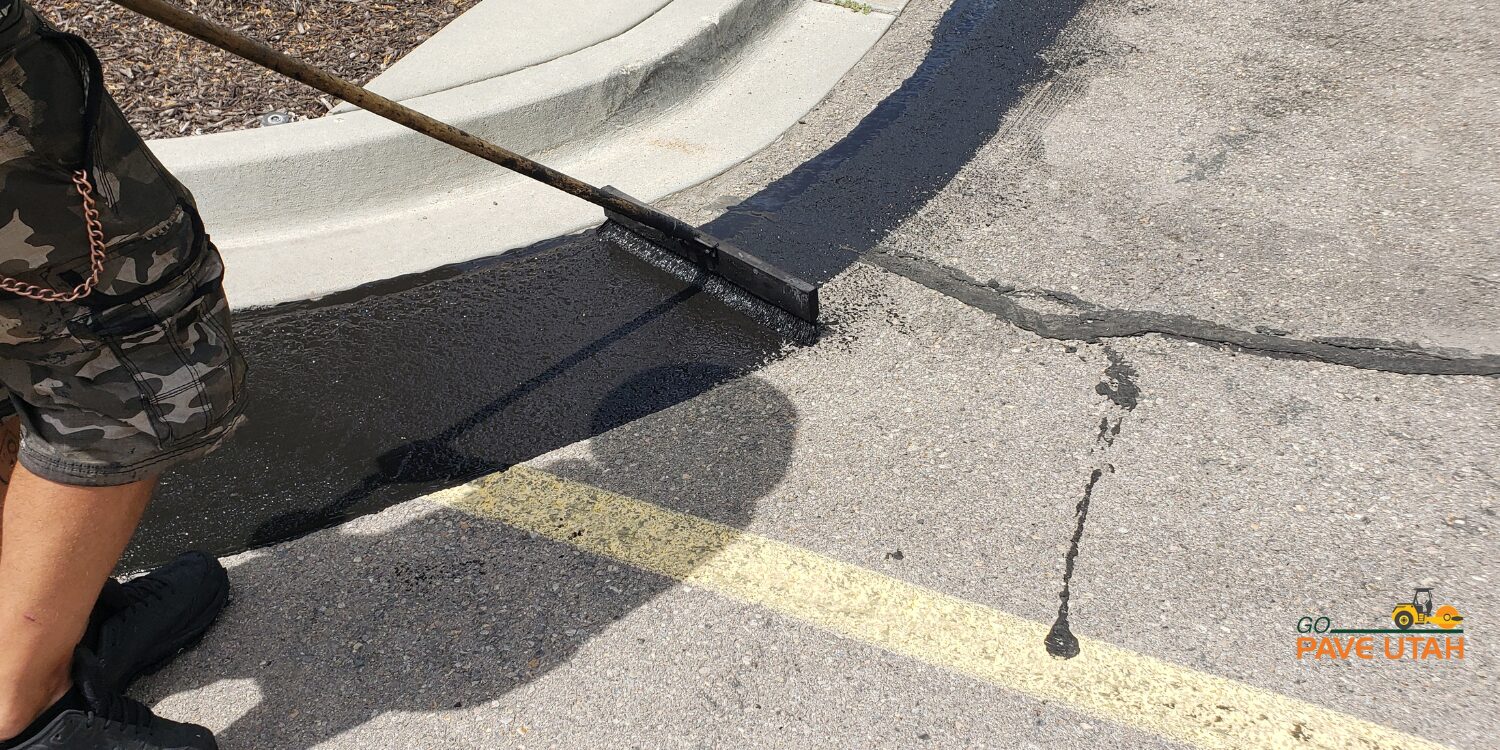Revitalize Angle Parking Lots: Asphalt Sealing Strategies Disclosed
Cold Mix Asphalt Vs. Hot Mix Asphalt: Which Is Right for You?

Structure Distinctions
Cold mix asphalt is produced by emulsifying the asphalt binder with water and an emulsifying agent before mixing it with aggregate. The hot mix asphalt production process involves warming the aggregate and asphalt binder separately before integrating them at the asphalt plant.
Moreover, chilly mix asphalt tends to be much less thick and a lot more versatile than warm mix asphalt. This versatility makes it far better matched for areas with higher levels of activity, such as driveways or roadways with hefty website traffic. In comparison, warm mix asphalt is recognized for its high longevity and resistance to rutting and splitting, making it a favored selection for freeways and high-traffic roadways where longevity is essential.
Setup Refine Differences
The process of installing chilly mix and warm mix asphalt exhibits notable differences in their procedures and needs. In comparison, hot mix asphalt requires a much more intricate installation process. Due to the heating demands, warm mix asphalt installments are usually lugged out by professionals with specific devices, guaranteeing a much more irreversible and structurally audio result.
Resilience and Durability Aspects
When thinking about asphalt choices, toughness and long life are critical variables to review for lasting sidewalk efficiency. Hot mix asphalt (HMA) is known for its extraordinary sturdiness and longevity. The high temperatures throughout the blending and laying process allow for better compaction, causing a denser and more powerful pavement framework. This brings about HMA being a lot more resistant to rush hour lots, extreme weather, and the effects of maturing compared to cold mix asphalt (CMA)
In terms of longevity, HMA normally exceeds CMA due to its remarkable strength and resistance residential or commercial properties. HMA sidewalks have a longer service life, requiring less frequent fixings and maintenance, which can convert to cost financial savings in the long run. In addition, HMA pavements are a lot more easily adjustable to fulfill particular task requirements, additionally enhancing their toughness.
Cost Considerations
Thinking about the monetary ramifications is a vital element when examining the choice in between warm mix asphalt (HMA) and cool mix asphalt (CMA) for sidewalk jobs. While the preliminary cost of hot mix asphalt is typically higher than that of cool mix asphalt, HMA usually gives an extra economical service in the long run due to its superior durability and long life.
In enhancement to material expenses, it's important to take into consideration the expenses connected with installment and maintenance when contrasting HMA and CMA. Inevitably, the decision in between HMA and CMA should take into account not simply the first expense yet also the long-lasting economic implications to figure out the most cost-effective choice for the certain sidewalk project.
Environmental Effect Contrast
Contrast of the environmental effects in between warm mix asphalt (HMA) and cold mix asphalt (CMA) exposes unique distinctions in sustainability techniques. HMA production requires high temperatures, bring about increased energy consumption and greenhouse gas discharges. The procedure additionally launches unpredictable organic compounds (VOCs) and dangerous air contaminants (HAPs) into the environment. On the other hand, CMA is generated and used at reduced temperature levels, reducing energy usage and emissions considerably. The lower production temperatures link of CMA lead to reduced fuel consumption and lower levels of CO2 emissions, making it a more environmentally friendly alternative.
Additionally, the use of CMA often entails recycling existing asphalt sidewalk, promoting source conservation and reducing the quantity of waste sent to garbage dumps. By opting for CMA over HMA, roadway construction tasks can contribute favorably to environmental preservation efforts.
Final Thought
Finally, the choice between cold mix asphalt (CMA) and warm mix asphalt (HMA) depends on numerous elements such as structure, setup process, resilience, durability, cost, and environmental effect. cold mix asphalt. While CMA provides a fast and cost-effective remedy for small repairs, HMA makes sure premium durability and longevity for rush hour areas. Think about these Learn More Here aspects meticulously to determine which sort of asphalt is the ideal option for your paving requires

Considering the monetary effects is an important facet when evaluating the option in between warm mix asphalt (HMA) and cold mix asphalt (CMA) for pavement tasks. While the first cost of hot mix asphalt is commonly greater than that of cold mix asphalt, HMA typically gives a more affordable option in the lengthy run due to its premium resilience and Get More Information durability. asphalt repair.Contrast of the ecological impacts between hot mix asphalt (HMA) and cold mix asphalt (CMA) exposes unique distinctions in sustainability techniques.In verdict, the selection in between cold mix asphalt (CMA) and hot mix asphalt (HMA) depends on various factors such as composition, installment procedure, durability, durability, price, and ecological influence